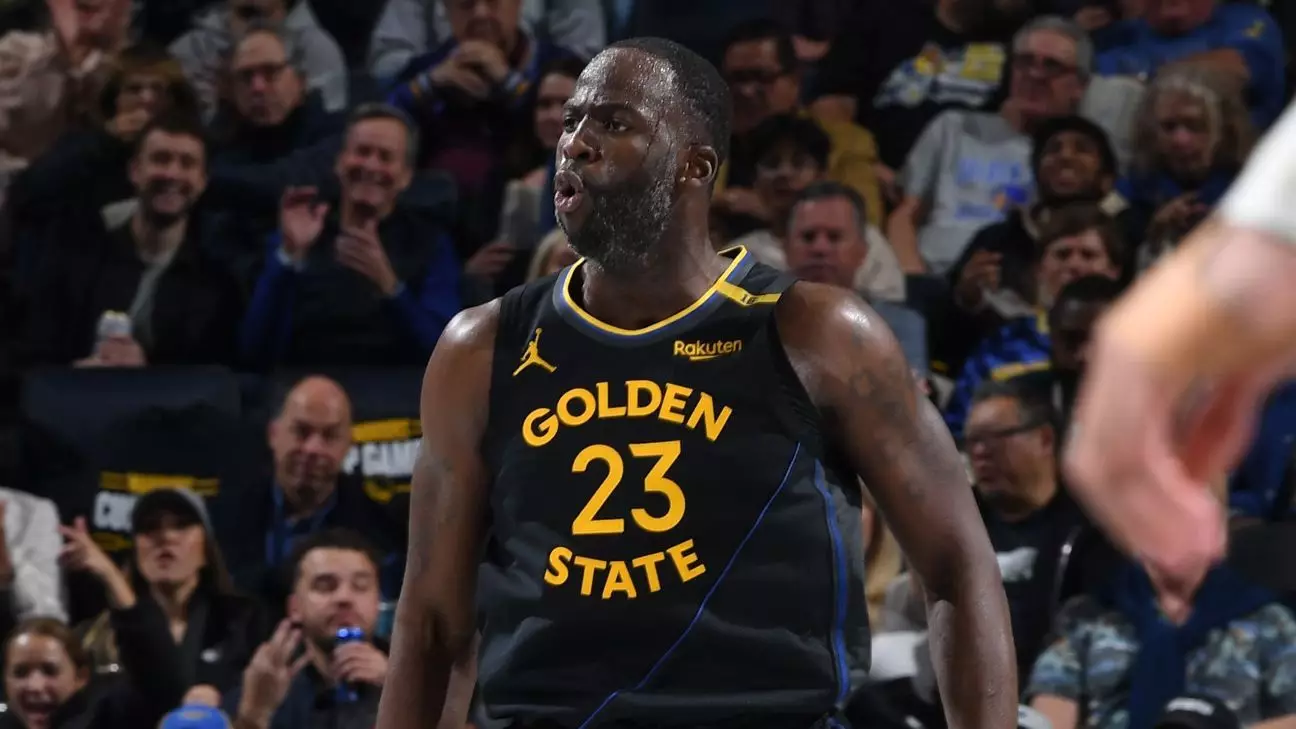In sports, moments of intense competition can often lead to unforeseen conflicts that ripple through teams, causing disruption and unrest within tightly-knit groups. One such incident that epitomized this phenomenon occurred over two years ago when Draymond Green of the Golden State Warriors made headlines for an altercation involving former teammate Jordan Poole. More recently, Green publicly apologized for that notorious moment, recognizing its lingering effects on team morale and relationships.
Now, as Poole returns to San Francisco as a member of the Washington Wizards, Green’s sentiments, expressed through social media and his own podcast, unveil a complex narrative of regret, responsibility, and the challenge of moving forward. On the surface, this appears to be an effort to put the past behind; however, it also reflects the struggles many face when reconciling personal growth with previous actions.
The fallout began in October 2022 during a pre-season practice session. A heated exchange culminated in Green throwing a punch at Poole after the younger player pushed him following an exchange of words. This shocking act of violence, captured on video and leaked to the public, drew swift condemnation and forced the Warriors’ organization to grapple with the fallout throughout the team’s subsequent seasons. While Green did issue an initial apology and faced team-imposed fines, the emotional scars of that incident shaped team dynamics, leading to Poole being traded in June 2023.
In response to Poole’s recent comments hinting at still harboring feelings about the incident, Green took to social media, stating, “I really am sorry.” This phrase encapsulated not just a declaration of remorse, but a desire to close the chapter on what had become a contentious memory. Green elaborated on his podcast, stressing the need to move on, asserting that Poole’s comments risked reopening old wounds that both parties had seemingly begun to heal.
Balancing Reflection with Accountability
While it’s commendable that Green has taken ownership of his actions, the nuanced perspectives he shares reveal just how challenging it can be to navigate personal accountability. During his reflections, Green stated, “I know I was wrong,” yet he also alluded to the provocations that led to his reaction. Such statements reflect the dual nature of accountability: recognizing one’s own misdeeds while grappling with the circumstances that led to those decisions.
Significantly, Green’s admission that he oscillates between knowing he was wrong and contextualizing his actions as a reaction suggests that understanding the root cause of conflicts is an essential part of emotional growth. His recognition that “you can’t call a man a B-word and push him and not get hit” sheds light on an athlete’s mindset under duress, emphasizing the intense emotions and pressures of professional sports. This is a reminder that even highly skilled athletes are still human, subject to visceral reactions when provoked.
Green’s recent behavior indicates significant growth since the tumultuous events surrounding Poole. The Warriors veteran has faced criticism in the past, culminating in various suspensions for other altercations. Yet, post-transgressions, he has sought help through counseling and conducted self-reflective work that he believes is reshaping his approach both on and off the court. His commitment to therapy and accountability appears to be paying dividends; he noted a decrease in both technical fouls and ejections compared to previous seasons.
This year, Green advocates for a culture of accountability, emphasizing the importance of recognizing one’s mistakes. He aims to challenge the narrative of failure, asserting, “But I’m not a failure.” His refusal to let past actions define his future displays the often-unacknowledged strength required to take ownership of one’s faults. By seeking to learn from the past, he not only enhances his personal journey but also sets a precedent for others who find themselves in similar situations.
Moving Forward Together
As Poole and the Wizards returned to the Warriors’ home court, the emotional undercurrents were palpable. Green’s heartfelt apologies and public admissions serve as a critical reminder that, in a world where accountability often takes a backseat to ego, recognizing our own shortcomings can pave the way for emotional healing and personal growth. The important lesson here is not just about acknowledging past mistakes but also about fostering an environment where dialogue and understanding can thrive, enabling players to move forward together rather than being anchored by past conflicts.
Ultimately, both Green and Poole must navigate a shared history shaped by conflict as they continue to develop their respective careers. The sports community can draw both wisdom and inspiration from Green’s journey of accountability—one that emphasizes resilience, growth, and the undeniable importance of maintaining open lines of communication through even the most tumultuous times.



Leave a Reply